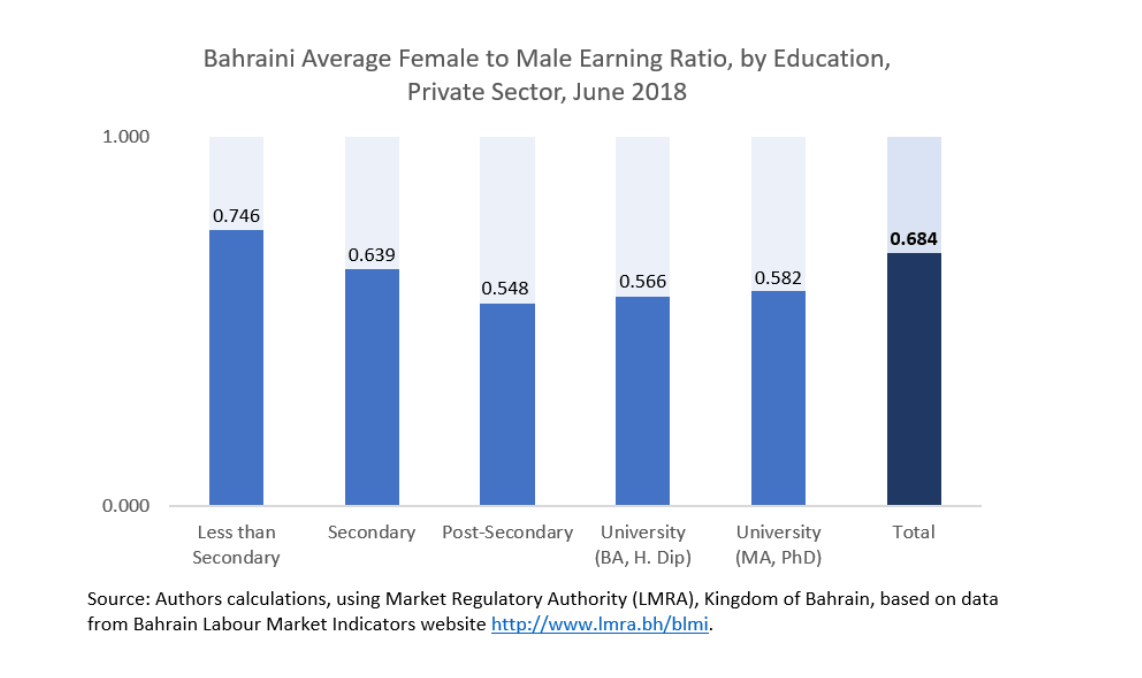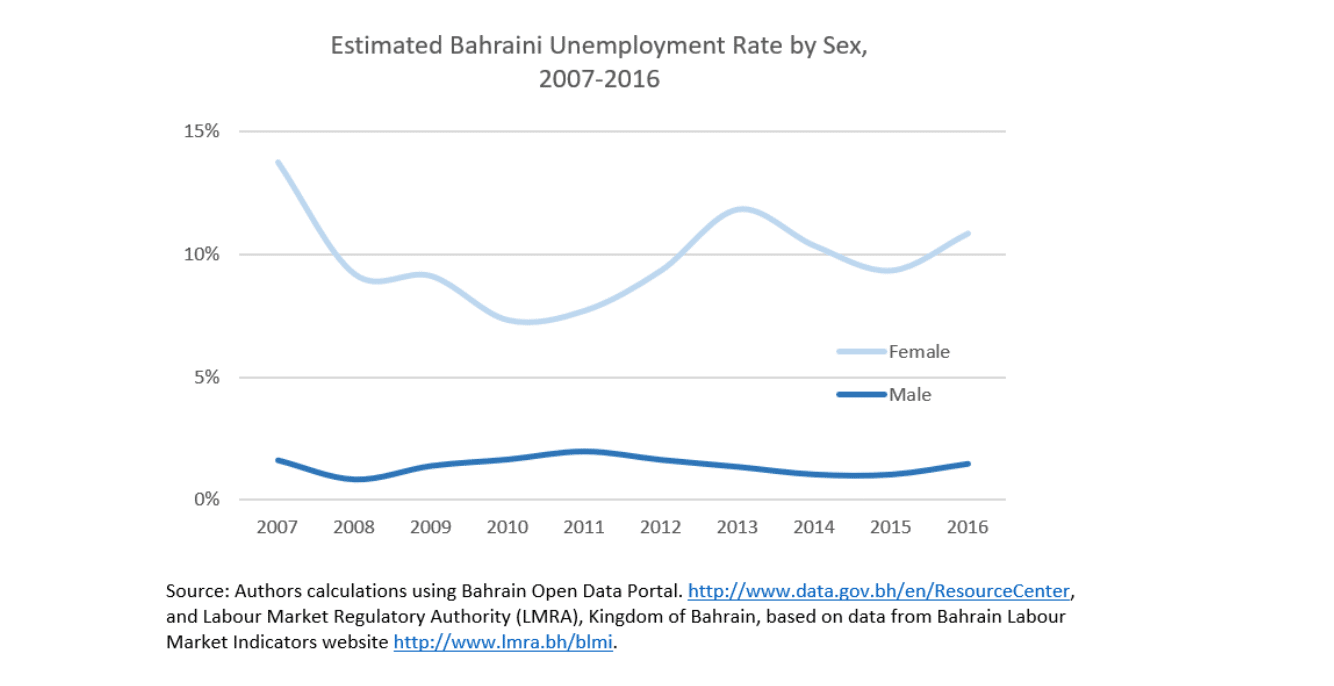I once recall having a conversation with a work colleague about a junior vacancy that had just opened in his department. The previous female employee had given birth and chose to quit so she could spend time raising her child. He casually mentioned that, if he was a manager, there was no way he would hire another woman. “Imagine the time spent training and teaching an employee, just so that they could get married, have a child and leave! No. A man, preferably single and with no household responsibilities, is obviously the way to go.”
From my experience, this is a common view, and one of many reasons that a gender wage gap exists. All over the globe, women earn less than men, and Bahrain is no exception. In the World Economic Forum’s 2018 Global Gender Gap Report, Bahrain ranked 132nd out of 149 countries. While we have made some progress in closing the gap in recent years, there is still much to be done.
In the public sector, given the standardization of pay by grade, average wages for men and women are quite similar (BD 833 for women and BD 886 for men in Q2 2018). However, in the private sector, Bahraini women earn 68.4% of what Bahraini men receive on average. This is despite being more educated; 30% of women working in the private sector have a university degree, compared to only 19% of men. In fact, when breaking down average wages by education, the gap is substantially wider at higher education levels.*

Note that this does not mean that women are paid 68% of men’s wages for the same jobs. WEF ranks us highly (12th globally in 2018) in terms of “wage equality for similar work”. However, the gap captures two distinct channels: women are either paid less for similar work and/or are working in lower-paying occupations. Each of these factors is important, since women may be stuck in more junior positions or under a glass ceiling. The barriers to entry can begin at the very start of a woman’s career. Cultural expectations both shape and reinforce gender norms and responsibilities. Because men are not expected to participate in housework, the burden of taking care of the home or raising children falls on the woman’s shoulders. This can push women out of the labor force, especially in fields that have high time-commitments. Employers become wary of hiring women, resulting in more female job seekers than available jobs, placing downward pressure on wages. Lower wages, in turn, do not provide the necessary incentive to work. This keeps women out of the workforce, reinforcing the cycle.
Of course, many women prefer not to work, and that is perfectly fine. People should have the opportunity and agency to decide for themselves. The more pressing concern is that there are many women who do want to work but are unable to find suitable jobs. Even though our overall unemployment rate has been generally stable at low-to-mid single digits over the past decade, breaking it down by sex shows a radically different picture: Bahraini women face substantially higher unemployment rates that can exceed 10% in some years, compared to 1-2% for men.**

Anecdotally, I have heard stories about women being directly asked during interviews about their intentions to marry or have children.*** A solution could be to ban employers from asking about marital status, but the difficulty in trying to police such behavior is that it can result in something called statistical discrimination. If employers can’t get direct information from prospective employees, they tend to avoid the entire group (here, young women) entirely, potentially doing more harm than good.
A better approach here could be to equalize, or at least increase, paternity leave policies to be more in-line with those for maternity. Currently, new mothers are entitled to sixty days paid leave, as well as fifteen days of unpaid leave. Fathers are entitled to one day. Studies in Canada and Sweden have shown that extending leave for fathers increases employment and pay for mothers since the incentive to hire men becomes less pronounced. It can also change overall cultural norms and expectations about raising children and household responsibilities, fundamentally shifting the way we think about gender roles. Other policies could help re-integrate women into the workforce if they leave for prolonged periods.
Nevertheless, there has been progress, both economically and culturally. The gap has been shrinking – a decade ago, Bahraini women in the private sector earned only 62% of what men made. A National Strategy for the Advancement of Bahraini Women now exists. A record number of women were elected to parliament last year. There have been numerous recent initiatives to empower women and increase female participation across different sectors. There is much to be proud of.
Yet, going forward, employers need to do better. Policymakers need to do better. We, as a community, need to do better. As our economy moves towards becoming more private-sector driven, we need the frameworks and structures that give people agency and allow them to reach their potential. A few years ago, in a talk in Saudi Arabia, Bill Gates was asked if the country could reach its aspiration of becoming a world leader in various fields. “Well, if you’re not fully utilizing half the talent in the country,” Gates said, “you’re not going to get too close to the top.” We could probably use that advice here too.
*Ideally, this would also control for work experience. However, the age distributions of men and women in the private sector are very similar, with the average age for both around 34, so the effect may not be too sizeable.
**This is calculated as the number of unemployed Bahrainis divided by the total number of employed workers and unemployed job seekers, for men and women respectively.
***Note that this would be illegal in some other countries. As far as I’m aware, our labor law states that termination of a labor contract (i.e. being fired) due to a “worker’s sex, color, religion, ideology, marital status, family responsibilities, or the female worker’s pregnancy, delivery of a child, or breastfeeding” is illegal, but says nothing about the hiring process.

